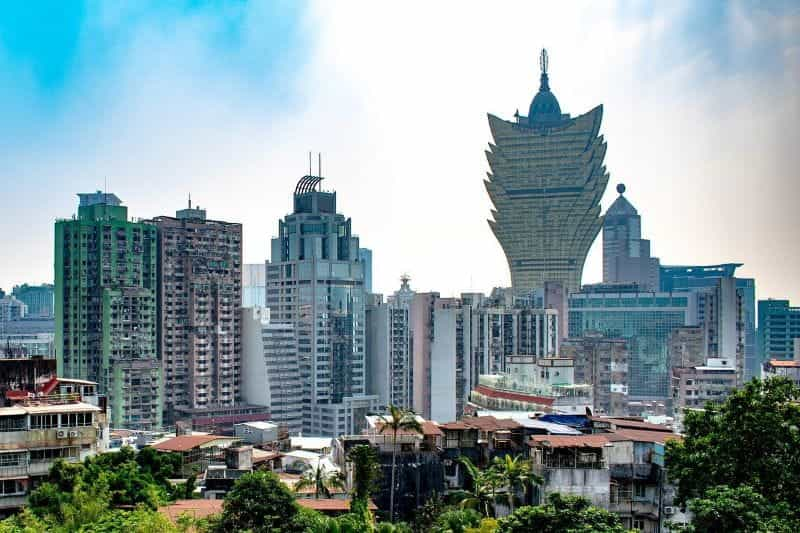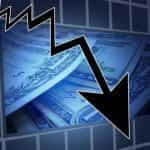Asia Market Conditions Trigger Macau Casino Sell-Off
Liquidity concerns and increased default risk on property developer debt positions have been a catalyst for a 4.8 percent pullback in the Hang Seng Properties Index, a key proxy for the general health of the economy that tracks the biggest firms in the Asian real estate industry. The fallout from the Chinese Evergrande debt crisis has so far been contained, and the Chinese government does appear to be willing to step into bailout the firm if things became too severe for the broader economy.

The very existence of Macau is under threat from a major regulatory crackdown. The tables have been dramatically turned over the past two years, as share prices in the main equities continue to tumble in the run up to 2022. ©8268513/Pixabay
Looking across the board at other sectors, the Hong Kong stock exchange saw many equities fall in value over the past few weeks. Macau casino operators tumbled too, the culmination of increased pandemic concerns on casino footfall and the lack of confidence in the market has shaped up for a very difficult Q4 in the Asian casino sector. The nail in the coffin has been the recent Chinese government crackdown on Macau’s regulatory independence, and it does now seem that Macau’s status as the casino capital of the world is coming to an end.
With stocks and indexes retreating across the board, it was the property sector that was affected the most. Firms such as Country Garden Services sank by more than 10%, China Resources Land and China Overseas Land also saw big selloffs. In tech, a sector that has managed to outpace the difficult macroeconomic difficulties in recent years, itself saw a big pullback. Tencent Holdings and Alibaba both fell by at least 1.5 percent.
So, what is the outlook for the Hang Seng Index. Over the past 30 years, this index has seen a return of more than 650%, growing intrinsically with China’s increased economic strength, the growth of domestic production, and a well-executed geopolitical strategy that has seen total GDP converge on the United States’ dominant position. How the performance will pan out over the next 12-18 months is anyone’s guess and will likely depend on how the global pandemic unfolds.
Market Fear in the Chinese Property Bubble is Growing
Cash-flow concerns and mounting debt obligations amongst Chinese property developers have led to a major sell-off in Shimao, with the property services unit of this firm nose-diving a sharp 32% in value. JP Morgan, an investment bank, downgraded its rating of several major firms in the space, before selling a large quantity that is already held on its balance sheet. Fitch, a credit rating agency, also moved to downgrade several companies, and officially declared China Evergrande and Kaisa Group in default, after the firms failed to repay foreign holders of its bonds.
Weibo, a popular social-media firm in China is already a living example of how financial success and prosperity can be quickly eroded in this unpredictable market. The tables were turned on the firm when the Chinese government slapped a fine against the platform for allowing forbidden information to be posted on its platform.
Foreign investors are slowly beginning to realize that to be successful in Chinese business requires more than entrepreneurship, good product, and solid investors. There is a fourth dimension, and that is navigating the intensely complicated and counter-intuitive demands of the Chinese regulators. With politics and business closely linked, it often comes down to personal relationships and portraying the right message to succeed.
China’s Casino Sector a Going Concern
The spillover into the Macau casino sector has already been realized, with steep losses across the city’s biggest operators. Wynn Macau and MGM China plunged by over 10% and Fitch has already placed several casinos on a special concessionaries watch, meaning there are going concerns developing with regards to the imminent regulatory crackdown on the sector by China’s policymakers. Other casinos didn’t fare well either, and Sands China slipped by 7%, with Galaxy Entertainment the least affected of the group, but still shedding 4% of its equity value.
The recent arrest of SunCity boss Alvin Chau has raised the tension around the longevity prospects of Macau as a casino hub. The fears are growing that China will employ drastic actions to clean up the industry, and levy new rules against existing operators. The reasons are far from the paranoid concerns of a few wealthy casino bosses. VC firms in the west, financiers, gamblers, and service industry workers are all directly tied to the financial performance of the umbrella of Macau’s casino sector.



